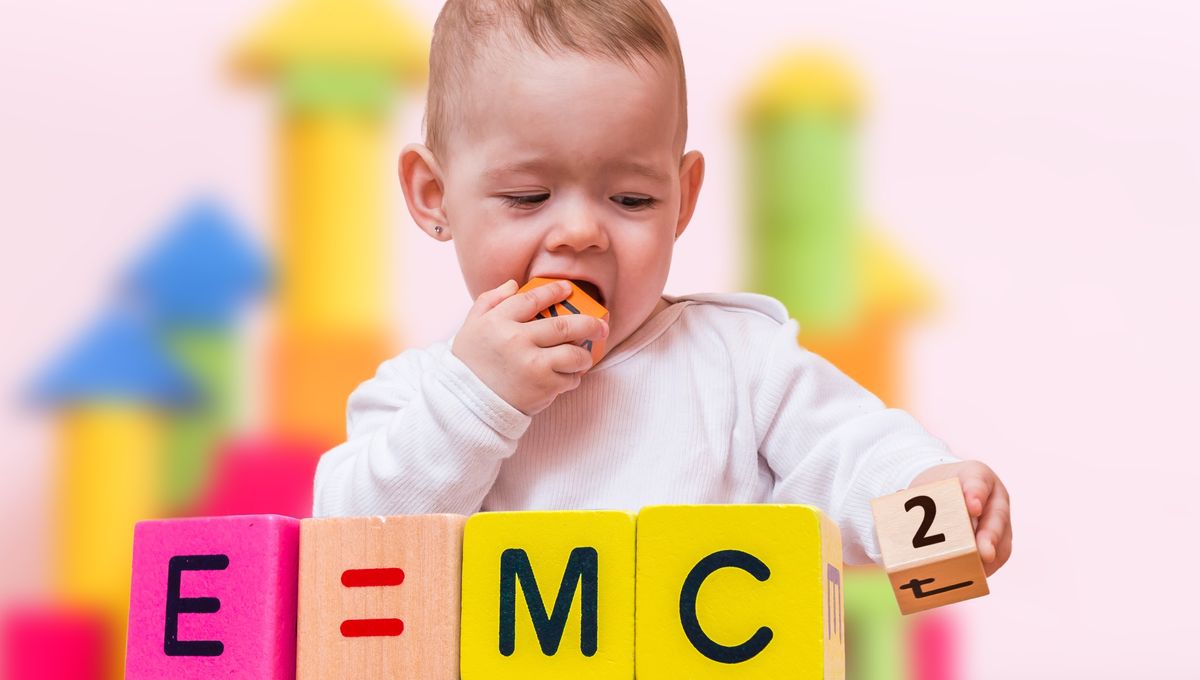
A British toddler has become the youngest ever member of the exclusive high-IQ (intelligence quotient) society, Mensa.
The child, Joseph Harris-Birtill, who was born November 23, 2021, became a member of the non-profit organization when he was 2 years and 182 days old, according to Guinness World Records.
In order to be accepted, the boy needed to demonstrate that he had an IQ of at least 132, which represents the top 2 percent of the population – something that his parents, both of whom work at the University of St. Andrews, believed was achievable given his propensity for learning.
“It soon became clear that he was an exceptional little being,” Dr Rose Harris-Birtill, Joseph’s mother, told Guinness World Records. “He first rolled over at five weeks, said his first word at seven months, and read his first book out loud from cover to cover at one-and-three-quarter years.”
“By two-and-a-quarter years old he was reading out loud fluently for 10 minutes at a time, could count to 10 in five languages and could count forwards and backwards to well over 100.”
According to his mother, Joseph is now learning Morse code, knows the Greek alphabet, and has “gotten interested in the periodic table – his interests are vast and varied, and he is always keen to learn more and loves a challenge.”
Joseph’s parents first reached out to Mensa for additional support when it became clear he was able to advance far quicker than the average kid.
“I searched online for any further support available, and saw that Mensa offers resources and membership for highly able children. We hope that this accomplishment can give him a sense of pride when he is older – it’s a very unusual accolade and the credit is all his!”
IQ and a murky history
Mensa is the largest and oldest organization for people with the highest IQs in the population (the top 2 percent). It was first founded in 1946 and now offers membership to around 140,000 people across the world. According to its website, the organization’s name comes from the Latin word for “table”, representing the “ideal that all members of the society sit as equals around a table”. This is, they say, “regardless of racial, religious, political and socioeconomic distinctions.”
Although this is a laudable ideal today, the wider history of IQ as a meaningful measure of a person’s overall intelligence has been a little more fraught with issues. Today, we tend to take it for granted that IQ equals innate ability and level of intellect, but the original purpose was to identify school children who may have needed additional assistance in their learning.
These tests assessed the performance of three key skills – working memory, visual-spatial reasoning, and verbal reasoning. At the time, one of its leading creators, Alfred Binet, explicitly warned that this approach was a tool for identifying skills at a particular point in a person’s development, and should not be interpreted as an innate or fixed indicator of their intelligence. However, this warning was ignored when the IQ test was picked up by leading eugenicists, especially in the US, who saw it as a convenient way to sort people into categories based on contemporary prejudices.
Early versions of the test became proof of supposed hierarchies in society, based on racial and demographic views that mixed intelligence with genetics, fixing them as innate and immutable. Of course, such thinking became a powerful logic for justifying various attitudes towards different racial groups, especially black people, and classes of society. In particular, it provided supposedly objective grounds to argue for things like immigration restrictions (topical, right?), forced sterilization of those deemed to be “low” in IQ, and for maintaining racial hierarchies.
Today, the IQ score has largely shed itself of its more questionable historical affiliations (though it is still used in conjunction with prejudiced ideologies in certain circles), but that does not mean everyone agrees with it. In fact, there are plenty who researchers who have questioned its ability to meaningfully represent a person’s intelligence as it only covers a sliver of what counts as “intelligence“.
This is mostly because the idea of what constitutes “intelligence” is still up for grabs – does a person’s whole intellectual ability come down to their logical reasoning, memory, and verbal or mathematical skills, or is there more to it? What about emotional intelligence, creative thinking, social and practical skills, or cultural and contextual knowledge?
The answer to this question itself may be a cultural one, as what is seen as important and valued will vary depending on where you are in the world.
At the same time, the emphasis on IQ scores also highlights issues concerning access to education. Those from lower economic backgrounds are less likely to be able to benefit from the types of educational resources available to people from wealthier and already educated backgrounds. There is also the issue that labeling someone as having a low IQ could actually hinder their development, as parents and teachers often see it as a score that will determine their futures.
As with many things, IQ scores offer a view of a person’s ability, but it is important to remember that they are a tool that cannot capture the details of a person’s life or potential. They may be useful for identifying children who might need additional help, but they should not be applied as indicators of permanent ability or stasis.
Source Link: 2-Year-Old Who "Loves A Challenge" Becomes Youngest Ever Member Of Mensa